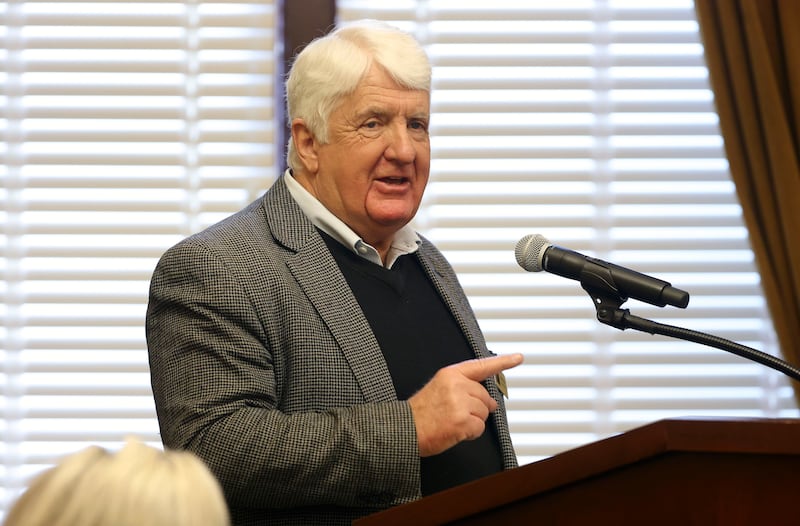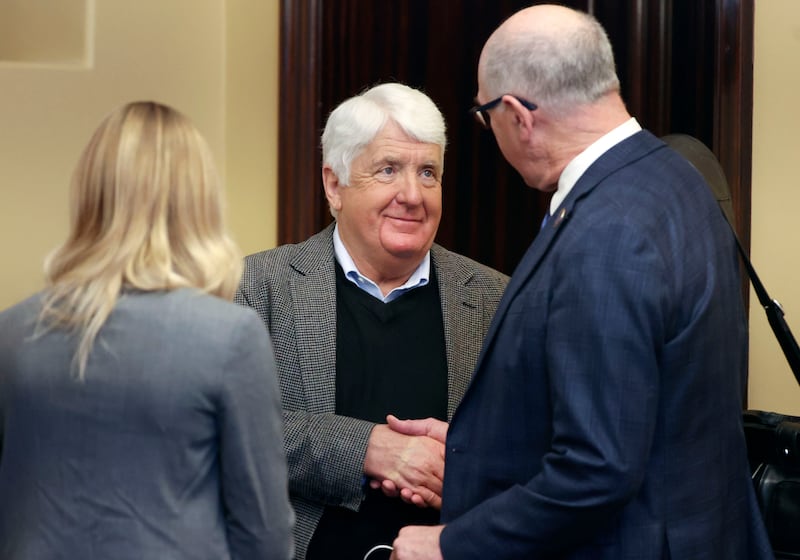Presidents are “usurping” legislative authority and are “not going to stop” unless states reassert their sovereignty, former Utah Congressman Rob Bishop told a group of lawmakers gathered in the state Capitol on Friday.
Speaking at an event organized by Utah Citizens for the Constitution, Bishop said most members of Congress don’t understand the concept of federalism — what he described as the “vertical” and “horizontal” separation of powers. Bishop said it’s not an issue of Democrats versus Republicans, pointing to President Joe Biden, as well as former Presidents Donald Trump and Barack Obama — all of whom have used executive action to advance policies.
“There are things that are happening in Washington today that are moving us farther away from either the horizontal separation of powers or the vertical separation of powers, and it’s not going to come back on its own,” he said.

As for addressing the problem, Bishop said constituents should contact their state representatives instead of relying on Utah’s federal delegation.
“There are also some people who claim to believe in states’ rights and federalism, but realize when you go to Congress, your goal is to try and do something for people to create a solution,” he said. “So even though people ... say they believe in federalism, when it comes right down to it, solving a problem is bigger than that. ... Looking at a solution becomes more significant than actually making sure the structure of government is secure.”
He said the courts are another avenue states should pursue and praised the recent decision of the Supreme Court to block the vaccine-or-test rule imposed by the Biden administration.
Rep. Ken Ivory, R-West Jordan, agreed that lawmakers have a responsibility to maintain the “balance that protects our rights,” adding that the structure of government is more important than specific policies.
“You know, the washing machine’s out of balance, you don’t get somebody else to push the buttons and, you know, change the detergent. You get in there and fix the machine,” he said. “We’ve got a machine, and it’s out of balance.”
Bishop told lawmakers that if they want to push back against the federal government, they need to be willing to reject federal funds. Quoting former House Majority Leader Dick Armey, R-Texas, he said, “If you want to get out of the trap, you have to let go of the cheese.”
Ivory expressed interest in creating a “rainy day fund” to help transition Utah to not rely at all on federal funds. HB209, sponsored by Ivory, would create the Federal Program Reserve Account, which would “augment or replace federal funding that is rejected by the Legislature or otherwise no longer available.”
The bill also addresses Utah’s Federalism Commission, which is tasked with safeguarding federalism and maintaining the structures that protect state sovereignty. Currently, the commission can meet nine times each year without further approval by the Legislative Management Committee, but Ivory’s legislation would allow them to meet “as often as needed.”
“The idea is we systematically review the actions of federal government,” he said. “We vigilantly patrol that boundary all the time and then we take action. ... Alexander Hamilton said we safely rely on the state legislatures to erect barriers against the encroachments of the national authority.”
Bishop encouraged states to work together, calling “interstate cooperation” an “essential” part of pushing back against the federal government.


